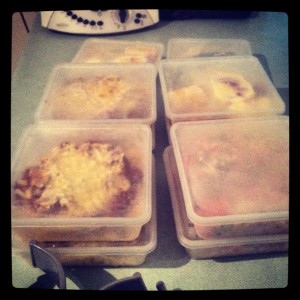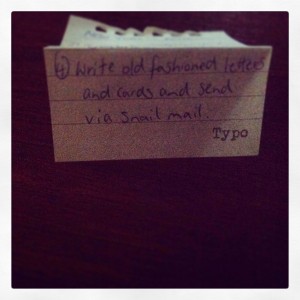THE CURLY PHONE CORD
Remember when you would get home from a day at school and then you would get onto the phone to talk to your best friend again? The long curly phone cord stretched as far as you could get it down the hallway and away from the prying ears of your parents.
These days most of us don’t even have a landline. We are mobile and can be accessed anywhere. Anytime. We think we’re wired for love through our new mobile connections but are we actually connected in?
Susan Maushart in her book “The Winter of Our Disconnect” takes her three totally wired teenagers on what she calls ‘The Experiment.’ For six months they would live a simpler life unplugged.
I can only imagine what today’s teenagers (and adults) would have done. Complete meltdown.
Fortunately though the Maushart family learnt through ‘The Experiment.’
‘At the most basic level, The Experiment forced us to notice food more – and sleep, and each other. Before, eating had been a side dish. Now it was the main course, or at least one of them.’ (Page 230 of ‘The Winter of Our Disconnect).
Throughout her book she details the newfound joys of the simple things in life. Her daughter achieved well at school and her son dusted off his saxophone and even after “The Experiment” had ended continued to play it and developed a passion for music.
I wonder how much we miss out on because technology has a strangle hold on our lives. Look around you next time you are at a restaurant. How many are taking pictures for instagram? How many are actually holding hands? How many are phone free?
It’s important that we detox from technology from time to time. Set boundaries on how long you’ll be on the computer. Maybe, you could even leave your phones at home. My husband and I did this when we went to Italy for three weeks and even though it would have been super handy when he got on the train and I missed it, we managed to work it all out.
LET’S GET PHYSICAL
Being connected also means to understand that our spirit and our bodies are indeed connected. It’s important to start being intuitive. Listen to our bodies. What does it have to say for you?
After a year and a bit of struggling with ‘infertility’ (and I use this term loosely), and feeling like the whole process of seeing a specialist was way too clinical for my liking, I decided to take a step back from the whole process. You see I do things as naturally as I can. Natural body products, try to eat well, incorporate relaxation and so on. It didn’t make sense to me that I hadn’t even tried the natural fertility route.
One of the issues when it came to my infertility was amenorrhea. In other words they just weren’t showing up. According to Elle Griffin in her article “Why won’t my period come back? I’m so healthy” people with Amenhorrea have restricted their mindset. As I looked over the list which entailed: perfectionism, control, self pressure and harsh inner critic, I realised that there was no way my body could ovulate properly under those conditions. I needed to start looking after my precious endocrine system.
After going to a natural health clinic and seeing a Naturopath I’ve been able to get my periods five months in a row. That’s never happened before! That’s what being connected is all about, listening to your spiritual, emotional and physical health. I’ve never been so excited before to get a period! I’ve also just found out I have the mutated gene MTHFR a1298c Homozygous. I’ll go into this further in another post but basically both of my parents have a defective gene which means folate vitamins don’t break down in our bodies properly. Hence, the struggle with infertility. Thank goodness I connected to my body and asked questions because now I can pass this information on to others in my family. Being connected also means being empowered.
SOCIAL CONNECTEDNESS IS VITAL FOR OUR HEALTH
To connect with our bodies we also need to consider the effects of social connectedness. A group of studies run by Alex Haslam, a social psychologist from the University of Exeter in England suggests that ‘a large part of our sense of self is driven by group membership and social identity.’ Furthermore, ‘if a drug provided that same level of improvement as our results with social group therapy you could sell it for a lot of money.’ Throughout the study Haslam and his co author of the study Catherine Haslam studied the effects of social groups on someone who has suffered a stroke. Those who were socially isolated after a stroke had occurred were 40% more likely to suffer a stroke within five years. Additionally those stroke patients who did have a wide social network after a stroke demonstrated a 20% higher level of well being. (Reference: Social Connectedness is vital for health). (Also, I realise that this person has the same maiden name as me, but alas we are not related).
Catherine Haslam affirms further in the article that “on the basis of what is now a very large body of research we would urge the medical community to recognise the key role that participation in group life can play in protecting our mental and physical health. It’s much cheaper than medication, with far fewer side effects, and is also much more enjoyable.”
Being connected requires us to tap into our support networks whether that be our family, friends or social clubs. This connectedness helps us in our general well being. It’s important however, not just to stay connected within our small circle but to branch out and give back to others.
CONSIDER OUR SISTERHOOD
It’s all well and good to get connected here with our local family and friends but what about our wider community? Over the years we have had many events that have left us Australians with a sense of ‘compassion fatigue.’
How can we then help our sisters all over the world?
If you go to “The Colour Sisterhood Projects” you will be able to access a variety of ways you can help our fellow gorgeous women around the world.
Here are three causes just to get you started:
1. Pencil and Paper and Lessons with Love – Providing children in Calcutta with a warm meal and a formal education.
2. A21 – Did you know there are more slaves today than at any other point in history? 27 million in fact.
3. The String Movement – Enabling students to disarm bullying in their local schools.
COMPASSIONATE CONNECTIONS
This past month I have been incredibly blessed to have been connected in with some super rad family, friends, church peeps and work colleagues. You guys have all been amazing. Making connections might feel daunting for some but it doesn’t have to be laborious.
Here are some of the beautiful love gestures my tribe have done for me:
• Made meals
• Drove me to appointments
• Cleaned the house and ironed our clothes.
• Taken me out for social time. Many a cake, coffee, chat.
• Emailed me bone broth recipes and explained the benefits on how it can help my knee injury.
• Made me a super cool pouffe. (See my instagram slider).
• Got students to write on a card and sent it to me.
• Prayed for me
• Brought dinner and board games over.
• Helped me to develop my website.
Some of you can identify yourself in these points and I want to take this time to honour and thank you. You are so loved!
THE CHALLENGE
My new year’s resolution this year was to “write old fashioned letters and cards and send via snail mail.”
Write your answer to the question “What is your ultimate way to connect?” in the comment section below. I will send the first ten people to comment a personalised note in the mail.
Email me your address to: thebutterflyhouse@dianabraybrooke.com
I will not sell on your information or spam you.

Face to face is best but Facebook groups and messenger has won me over as it means I can “chat” in real time to friends overseas.
In person. Phone calls are great, letters are tough if I have to initiate but I can do it if I am the responder but in person, you can get the whole message.
Thanks Jeanette. I used to love a good phone call and I love receiving them too. I think these days everyone is so rushed and a text is quicker in a lot of ways (but then you lose that personable touch). I love writing letters. I miss the good old snail mail days! Thanks for writing 🙂